Are you navigating the sometimes complicated world of special diet accommodations? Crafting a well-structured letter to request the necessary adjustments can make all the difference in ensuring your dietary needs are met. Whether it's for a medical condition, allergies, or personal beliefs, clearly communicating your requirements is key. Join us as we explore tips and templates to help you write an effective letter that addresses your specific needs!
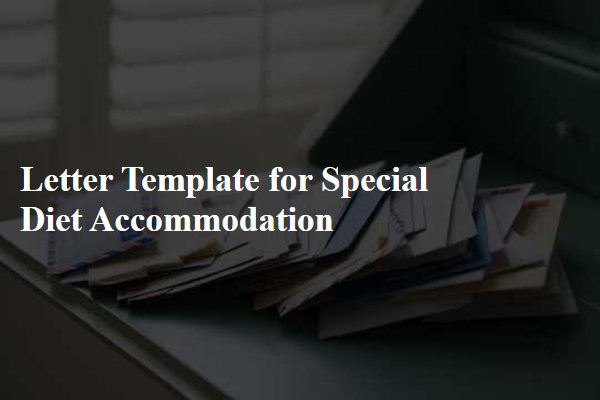
Recipient's contact details
A special diet accommodation request requires clear communication tailored to individual needs, ensuring recipients understand dietary restrictions. Detailed information should include specific allergies (such as peanuts or gluten), dietary preferences (such as vegetarian or vegan), and any medical conditions that necessitate these dietary choices (like diabetes or lactose intolerance). Providing necessary context allows accommodation providers to understand the importance of dietary compliance for health and well-being. Including contact details relevant to the request--name, email, phone number--also facilitates prompt responses for arranging suitable meal plans.
Clear subject line
Special Diet Accommodation Request for [Event/Service Name]
Personal or medical need explanation
Individuals with specific dietary requirements often face challenges in social settings or institutional environments, such as schools or workplaces. For example, medical conditions like celiac disease necessitate a strict gluten-free diet to prevent severe health complications, including gastrointestinal distress and long-term damage to the intestines if gluten-containing foods are consumed. Similarly, food allergies, such as those to peanuts or shellfish, can trigger life-threatening anaphylactic reactions within minutes of exposure. Therefore, accommodations for these dietary needs are crucial in ensuring individuals can participate fully in communal meals or events without risking their health. Such accommodations may involve providing alternative meal options or ensuring the kitchen follows strict food preparation protocols to avoid cross-contamination, thereby fostering an inclusive and safe environment for those with special dietary needs.
Specific dietary requirements
Individuals with specific dietary requirements often face challenges during events or dining experiences, especially in places like restaurants or large gatherings. Allergies to common ingredients, such as nuts, gluten, or dairy, require careful attention to menu selections. Additionally, dietary preferences stemming from cultural beliefs, including vegetarianism or veganism, necessitate thoughtful meal planning. Events like weddings or corporate functions often provide a range of meal options to ensure that all attendees, regardless of their dietary needs, can partake comfortably. Proper labeling of dishes and the availability of alternative ingredients can significantly enhance the dining experience for everyone involved.
Request for confirmation or follow-up
Individuals with specific dietary needs often encounter challenges when dining out, particularly in settings such as restaurants, schools, or events. It is crucial for establishments to recognize and accommodate conditions like gluten intolerance, lactose intolerance, or vegan preferences. A well-structured request for dietary accommodation should ideally specify the type of dietary restriction, such as gluten-free (where foods containing wheat, barley, or rye are avoided) or nut-free (avoiding almonds, walnuts, peanuts, etc.). Additionally, a follow-up can be essential; it helps to confirm whether the requested provisions are feasible and if the staff have updated their menus accordingly. Clear communication about these needs not only promotes inclusivity but also enhances the overall dining experience.
Letter Template For Special Diet Accommodation Samples
Letter template of gluten-free diet request for restaurant reservations.
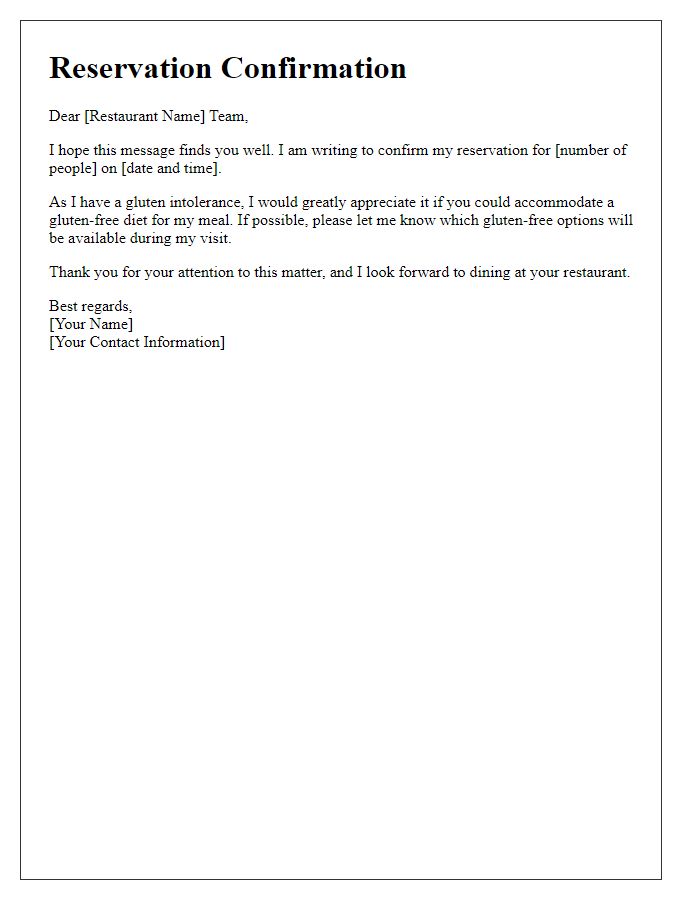

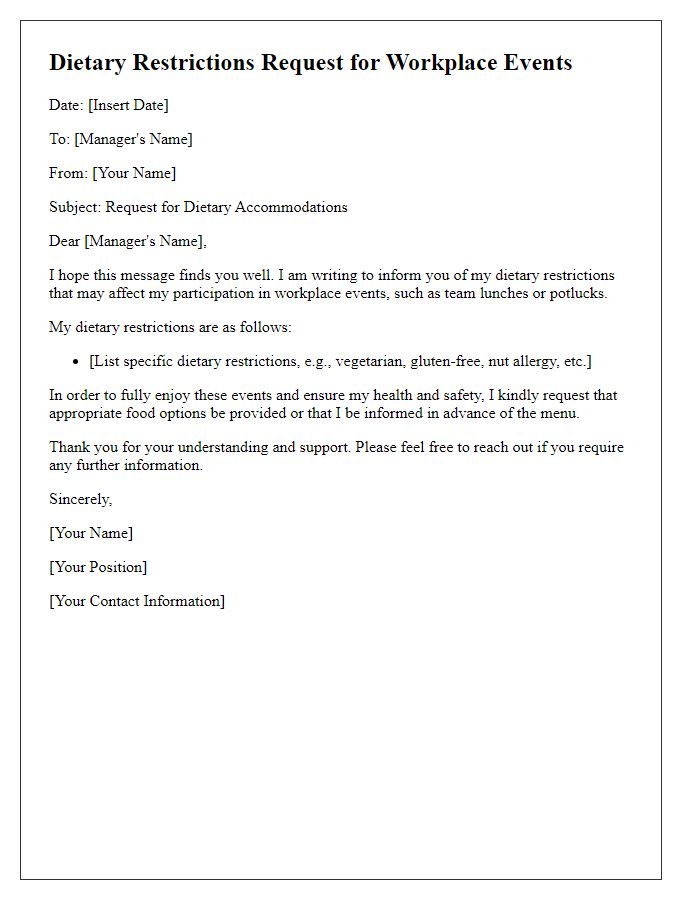
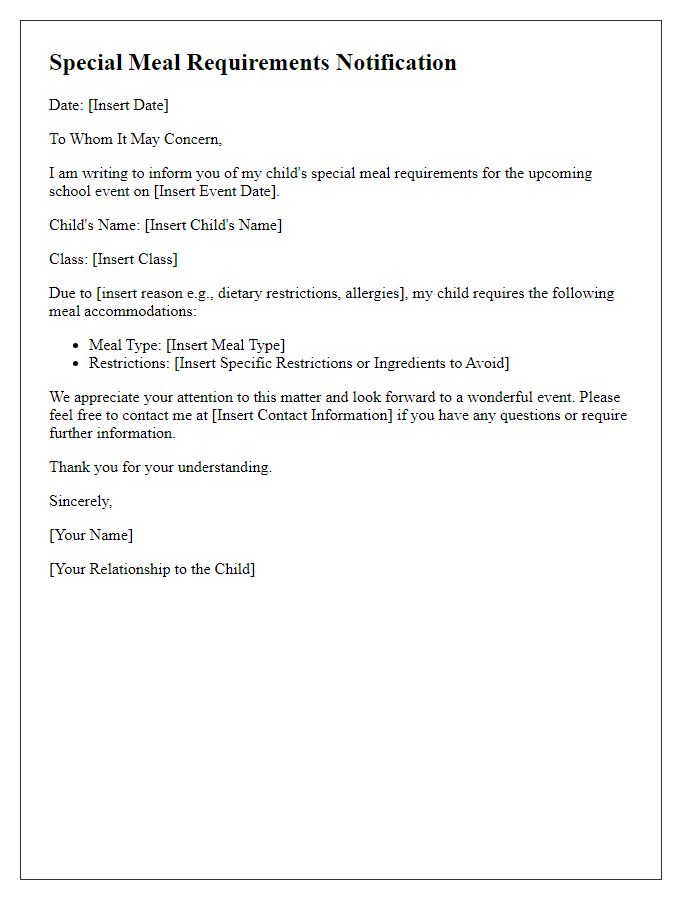
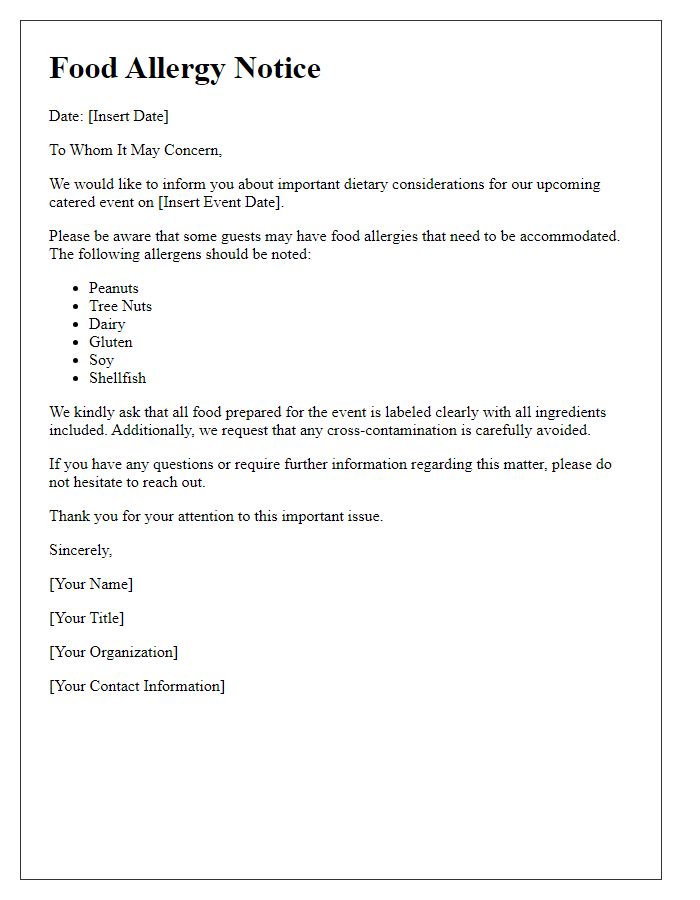
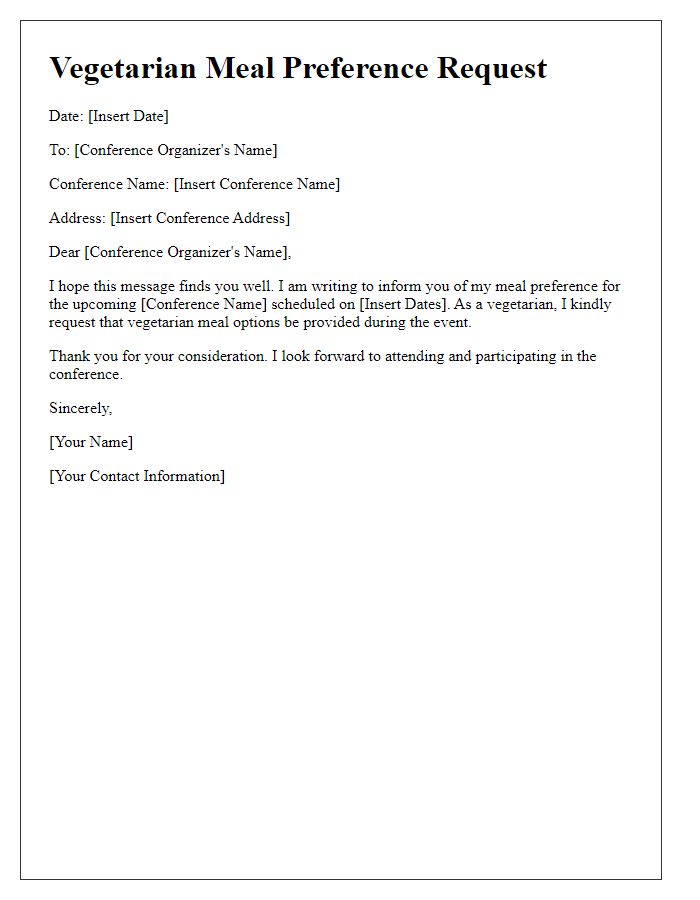
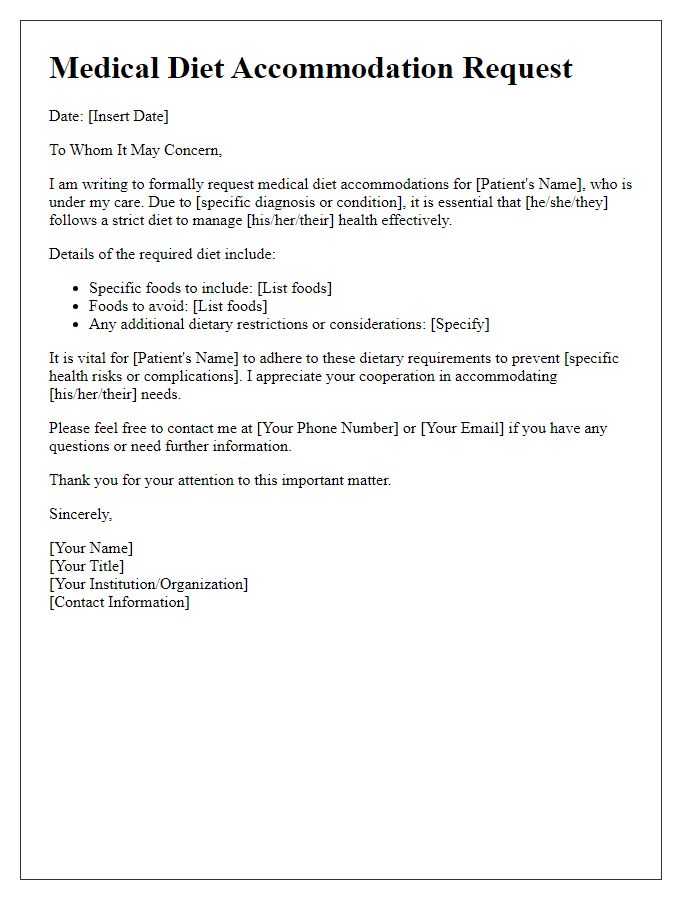
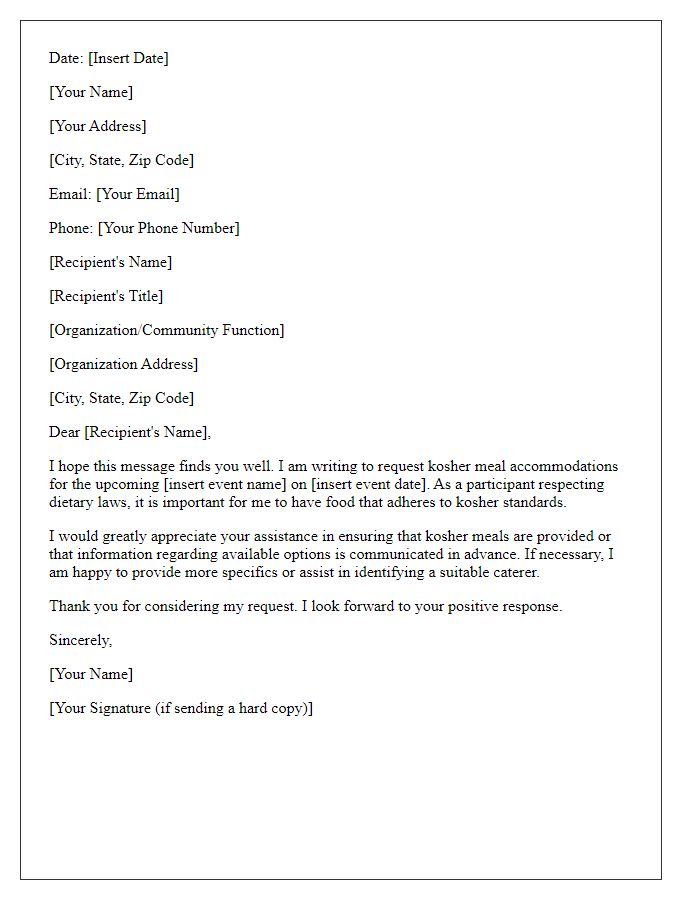
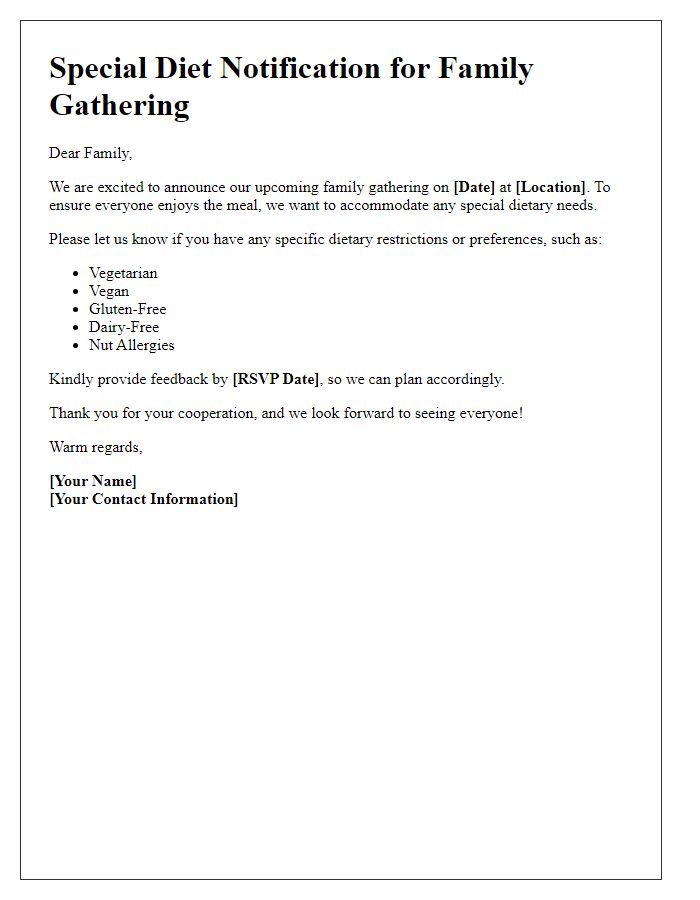
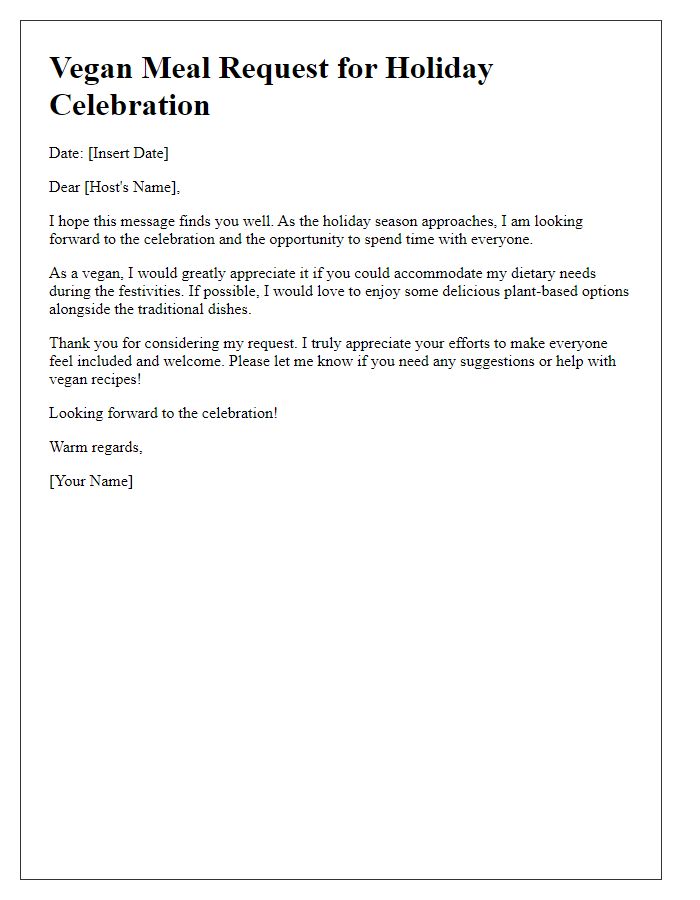
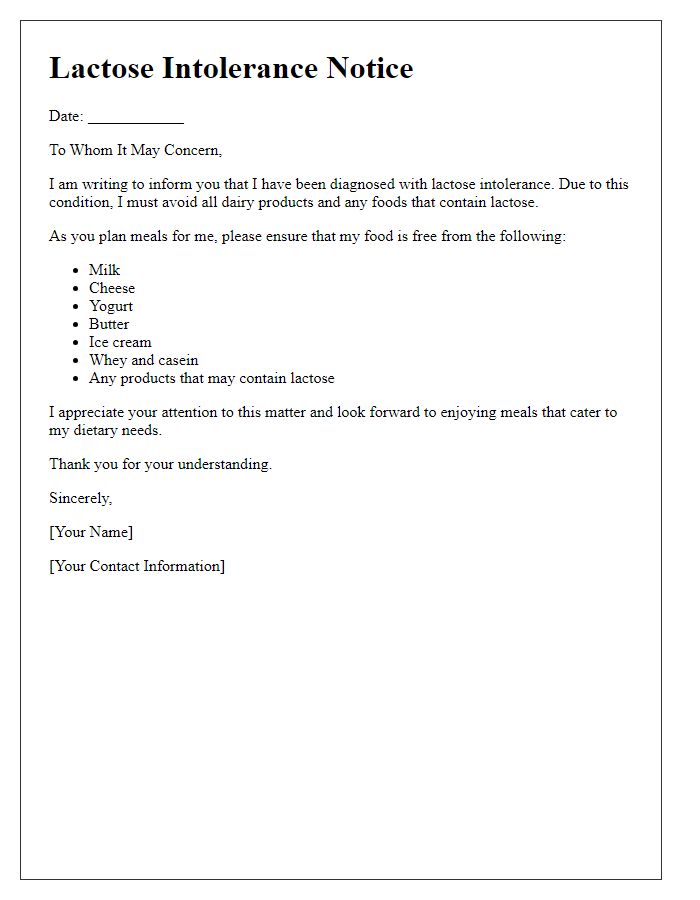


Comments